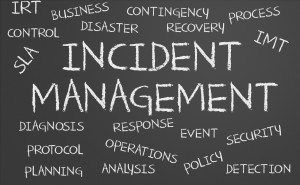Stress teaches us things. There are a lot of important things I have learned from stressful times in my life and in the lives of others I have worked with during their times of stress, trauma or crisis. Two of these lessons are:
- Activities are helpful in managing the stress.
- It is easy to forget about doing activities when we are in the midst of stressful.
 The activities you will read about here are good to implement into your life as healthy habits. They will help “inoculate” you against the effects of stress when it comes and even prevent getting to as high a level of stress as you might have reached otherwise. If you have experienced high stress, trauma or crisis, these are strategies to help you cope and recover. Even taking the level of stress down a couple notches will go a very long way in helping you get through periods of stress.
The activities you will read about here are good to implement into your life as healthy habits. They will help “inoculate” you against the effects of stress when it comes and even prevent getting to as high a level of stress as you might have reached otherwise. If you have experienced high stress, trauma or crisis, these are strategies to help you cope and recover. Even taking the level of stress down a couple notches will go a very long way in helping you get through periods of stress.
Franchesca Ramsey reviews 10 simple strategies from the Crisis Clinic with some very relaxing pictures of our furry friends at Upworthy.
Here is the list (check out Upworthy’s website linked above for more of their cute pics):
- Exercise –even a little bit. This is the first activity I recommend. Movement, any kind of movement, has been shown to help us feel better, reduce physical/mental stress and help give us a sense of control (vs. “being stuck” or feeling helpless).
- Give yourself permission to focus on someone outside yourself. Connect with others, help someone, volunteer. Helping others will lift your spirits.
- Give and get physical touch: A hug can do wonders. And perhaps a massage?
- Give yourself permission to feel bad. Remind yourself your reactions are normal and you may not be at your usual 100% for a time. And that’s okay.
- Give yourself permission to feel good. Some may not feel this is appropriate when going through something difficult, or that they deserve it. Try doing those things you enjoy as long as it isn’t potentially harmful (e.g. substance abuse, gambling, risky behaviors).
- Structure your time and develop a routine. Be sure to “pay” yourself first by carving out time for self-care activities. This is not selfish. Others benefit when you are taking care of yourself and are at your best.
- Engage in practices meaningful to you: prayer, walks in the woods, writing, reading or viewing inspirational material.
 Take breaks from periods of isolation. Get out and get connected. Excessive isolation increases stress, depression and other mental health problems.
Take breaks from periods of isolation. Get out and get connected. Excessive isolation increases stress, depression and other mental health problems.- Talk it out – maybe even with a professional. Talk about concerns with a trusted friend, family member, pastor or counselor. VITAL WorkLife has consultants available via the phone 24/7/365, and we can help you schedule face-to-face visits with a local counselor.
- Get plenty of rest. Even if your sleep has suffered, rest has restorative value. Lack of rest is itself a stressor and coping with life’s events will be more difficult. If insomnia is a problem, talk to your doctor or look into tips for getting good sleep, like our post, “8 Ways To Improve Your Sleep Habits” or check out the National Sleep Foundation website.
For further information on stress management related to work, have a look at the articles below:
Additional Tips – Self-Care in the Workplace
- https://www.psychologytoday.com/blog/occupational-hazards/200811/7-steps-better-employee-self-care-in-the-workplace
- http://au.professionals.reachout.com/developing-a-self-care-plan
For Clinicians
http://www.kevinmd.com/blog/2010/07/5-principles-selfcare-health-professionals.html
For Educators
- http://teacherpop.org/2015/08/teacherpop-on-the-road-10-self-care-techniques-for-teachers/
- http://www.nctsn.org/sites/default/files/assets/pdfs/CTTE_SelfCare.pdf
- http://www.mindfulteachers.org/p/mindful-but-busy-teachers.html
For Nurses
http://www.wrha.mb.ca/professionals/nursing/links-health-selfcare.php
For Mental Health Professionals
http://psychcentral.com/lib/how-clinicians-practice-self-care-9-tips-for-readers/
We Can Help
Call VITAL WorkLife 24/7 for the support you and your loved ones need.
EAP members call 800.383.1908
Physician Well Being Resources members call 877.731.3949


